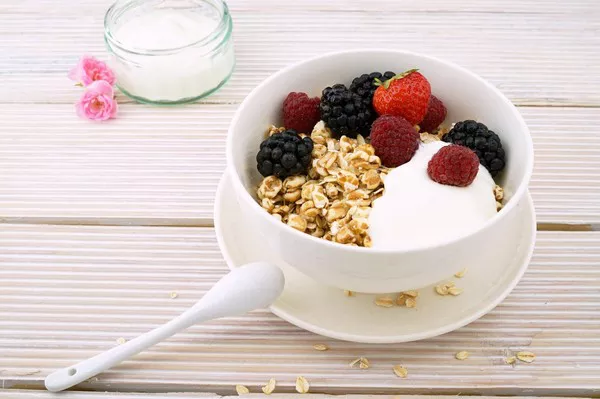Vitamins are essential micronutrients that play a crucial role in maintaining our overall health and well-being. Among the various vitamins, the B vitamins stand out for their remarkable significance. In this comprehensive article, we will delve deep into the world of B vitamins, uncovering the intricacies of each one. From B1 to B12, we will explore their functions, dietary sources, and the importance of incorporating these essential nutrients into our daily lives. Join us on this enlightening journey through the vitamin spectrum.
B1: Thiamine – The Spark of Vitality
Our journey into the world of B vitamins begins with vitamin B1, also known as thiamine. This vitamin serves as a fundamental component in our quest for vitality and well-being. Thiamine plays a pivotal role in energy metabolism, converting food into energy that our bodies can readily use. It’s often referred to as the “spark plug” vitamin, igniting the processes that keep us going.
Dietary sources of thiamine include whole grains, legumes, and pork. Incorporating these foods into our diets ensures we maintain adequate levels of this crucial vitamin. It’s important to note that a deficiency in thiamine can lead to a condition known as beriberi, which manifests as fatigue, muscle weakness, and nerve damage.
B2: Riboflavin – The Radiant Vitamin
Moving along the vitamin spectrum, we encounter vitamin B2, or riboflavin. Much like its name suggests, riboflavin is responsible for radiating energy throughout our bodies. It assists in the conversion of food into energy and plays a vital role in maintaining healthy skin, eyes, and nerve functions.
Riboflavin-rich foods include dairy products, lean meats, and leafy greens. Ensuring an ample intake of these foods helps us maintain optimal riboflavin levels. A deficiency in riboflavin can lead to various health issues, including sore throat, redness and swelling of the lining of the mouth and tongue (known as magenta tongue), and skin disorders.
B3: Niacin – The Versatile Vitamin
Vitamin B3, or niacin, takes center stage in our exploration of B vitamins. This versatile vitamin boasts a wide range of functions, primarily related to metabolism and cellular repair. Niacin also plays a critical role in maintaining healthy skin, nerves, and digestion.
Niacin can be found in both animal and plant-based foods. Meats, poultry, fish, and whole grains are excellent dietary sources of this essential nutrient. A deficiency in niacin can result in pellagra, a condition characterized by the “three Ds”: dermatitis, diarrhea, and dementia.
B5: Pantothenic Acid – The Protector of Cells
Vitamin B5, also known as pantothenic acid, is a crucial player in the world of B vitamins. This vitamin is integral to the synthesis of fatty acids and cholesterol, as well as the production of steroid hormones and neurotransmitters. In essence, it is the protector of our cell membranes and ensures their proper function.
Dietary sources of pantothenic acid include meats, whole grains, and legumes. Maintaining sufficient levels of this vitamin is essential for overall health, as a deficiency can result in symptoms such as fatigue, numbness, and muscle cramps.
B6: Pyridoxine – The Brain’s Best Friend
Pyridoxine, commonly known as vitamin B6, is essential for brain health and function. It plays a vital role in the synthesis of neurotransmitters like serotonin and dopamine, which are crucial for mood regulation and cognitive function. Additionally, vitamin B6 supports the production of hemoglobin, the protein responsible for transporting oxygen in the blood.
This vitamin can be found in a variety of foods, including poultry, fish, bananas, and fortified cereals. Maintaining adequate levels of vitamin B6 is essential for mental well-being, and a deficiency can result in symptoms such as depression, confusion, and anemia.
B7: Biotin – The Beauty Vitamin
Vitamin B7, also known as biotin, is often associated with promoting hair, skin, and nail health. While its role in enhancing our outward appearance is well-known, biotin has a broader range of functions. It participates in the metabolism of fatty acids, amino acids, and glucose, contributing to overall energy production.
Biotin can be found in foods such as eggs, nuts, and whole grains. Adequate biotin intake is essential for maintaining healthy skin, hair, and nails. A deficiency in biotin is relatively rare but can manifest as brittle nails, hair loss, and skin rashes.
B9: Folate – The Foundation of Life
Vitamin B9, also known as folate, holds a special place in the world of B vitamins due to its critical role in supporting growth and development, particularly during pregnancy. Folate is essential for DNA synthesis, making it fundamental for the formation of new cells and tissues.
Leafy greens, citrus fruits, and fortified cereals are excellent sources of folate. Ensuring an adequate intake of folate is crucial for preventing neural tube defects in infants and supporting overall cellular health in adults. A deficiency in folate can lead to anemia and developmental issues in unborn children.
B12: Cobalamin – The Nerve Protector
Our journey through the world of B vitamins culminates with vitamin B12, also known as cobalamin. This vitamin plays a pivotal role in nerve function and the production of red blood cells. It is unique among the B vitamins because it is primarily found in animal-derived foods, making it a vital nutrient for vegetarians and vegans to pay special attention to.
Dietary sources of vitamin B12 include meat, fish, eggs, and dairy products. A deficiency in this vitamin can lead to pernicious anemia, a condition characterized by fatigue, weakness, and neurological symptoms such as tingling and numbness in the hands and feet.
Conclusion
In conclusion, the B vitamins, from thiamine (B1) to cobalamin (B12), are essential micronutrients that play diverse and vital roles in our overall health and well-being. They are the sparks that ignite our energy metabolism, the protectors of our cells, the friends of our brain, and the foundations of life itself. Without these vitamins, our bodies would struggle to function optimally.
Incorporating a balanced and varied diet that includes foods rich in B vitamins is key to ensuring we meet our daily requirements. While deficiencies in these vitamins are relatively rare in developed countries, it’s still crucial to pay attention to our dietary choices and, if necessary, consider supplements under the guidance of a healthcare professional.
So, the next time you sit down to a meal, remember the important role that vitamins, especially the B vitamins, play in nourishing your body and sustaining your health. By giving them the attention they deserve, you’ll be on your way to a healthier and more vibrant life, filled with the vitality that only these remarkable vitamins can provide.
[inline_related_posts title=”You Might Be Interested In” title_align=”left” style=”list” number=”6″ align=”none” ids=”2477,2481,2500″ by=”categories” orderby=”rand” order=”DESC” hide_thumb=”no” thumb_right=”no” views=”no” date=”yes” grid_columns=”2″ post_type=”” tax=””]



































